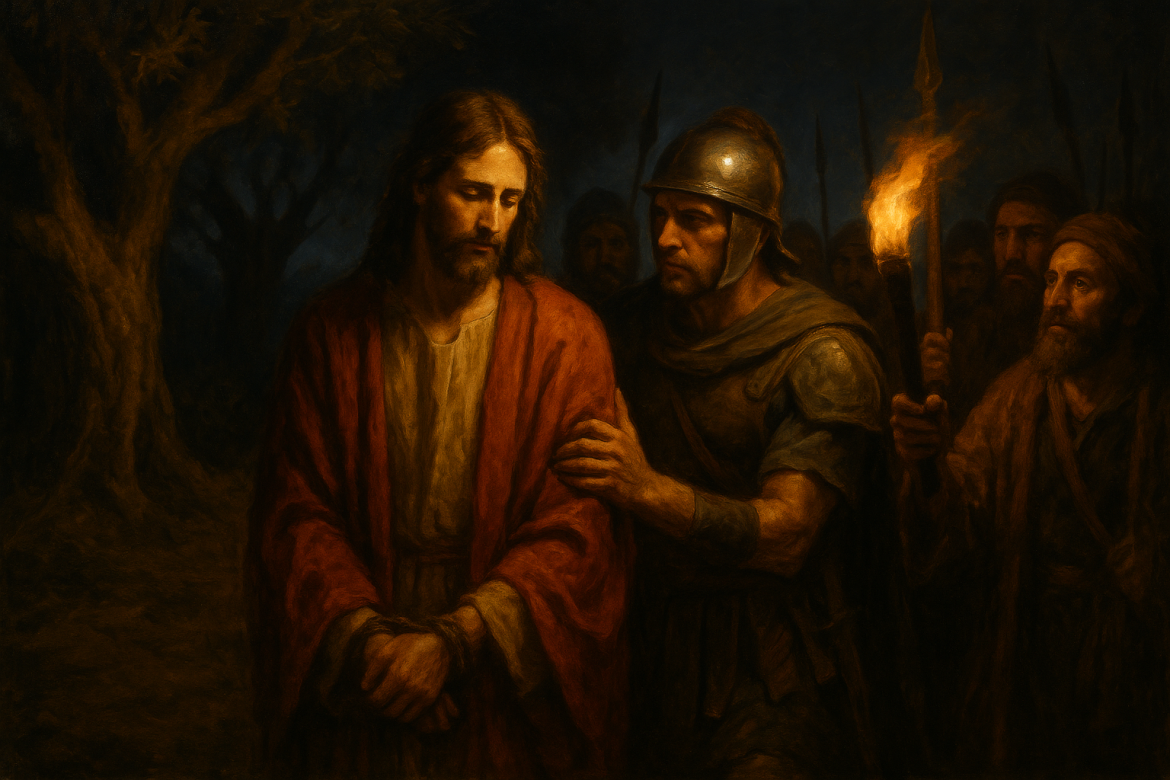In John 18, we uncover the profound layers of betrayal and the events leading up to the crucifixion of Jesus. This chapter provides a detailed narrative of the crucial moments that define Christian faith and exemplify Jesus’ fulfillment of prophecy.
The chapter opens with Jesus crossing the Brook of Kidron to a garden where Judas, the betrayer, arrives with soldiers. This scene is charged with tension as Judas leads armed men to arrest Jesus, highlighting the gravity of the betrayal. Jesus’ calm demeanor and his proclamation “I am he” resonate deeply, reflecting his divine identity and fulfilling the “I am” statements throughout the Gospel of John.
The betrayal escalates as Peter, one of Jesus’ closest disciples, attempts to defend him by cutting off the ear of Malchus, a servant of the high priest. Jesus’ response, instructing Peter to sheath his sword and his subsequent healing of Malchus, underscores his commitment to the divine plan.
Jesus is then taken to Annas and Caiaphas, the high priests, where he faces interrogation. Despite being struck and mocked, Jesus maintains his composure, answering their questions with profound wisdom. His responses reveal his mission and the divine truth he embodies, challenging the religious authorities’ understanding and their grasp on power.
Peter’s denial of Jesus, another significant event in John 18, unfolds in parallel. Despite his earlier declaration of unwavering loyalty, Peter denies knowing Jesus thrice, fulfilling Jesus’ prediction. This moment of weakness and fear is a poignant reminder of human frailty and the struggle to remain steadfast in faith under duress.
The chapter culminates with Jesus being taken to Pilate, the Roman governor. Pilate’s interrogation focuses on Jesus’ kingship and his mission. Jesus’ assertion that his kingdom is not of this world and his declaration of truth stand in stark contrast to Pilate’s cynical query, “What is truth?” This interaction highlights the eternal conflict between divine truth and worldly skepticism.
John 18 is a powerful narrative that not only portrays the events leading to the crucifixion but also encapsulates the essence of Jesus’ mission and the fulfillment of prophecies. It serves as a profound reminder of the sacrifice and the unwavering commitment to a divine purpose that transcends earthly challenges.

